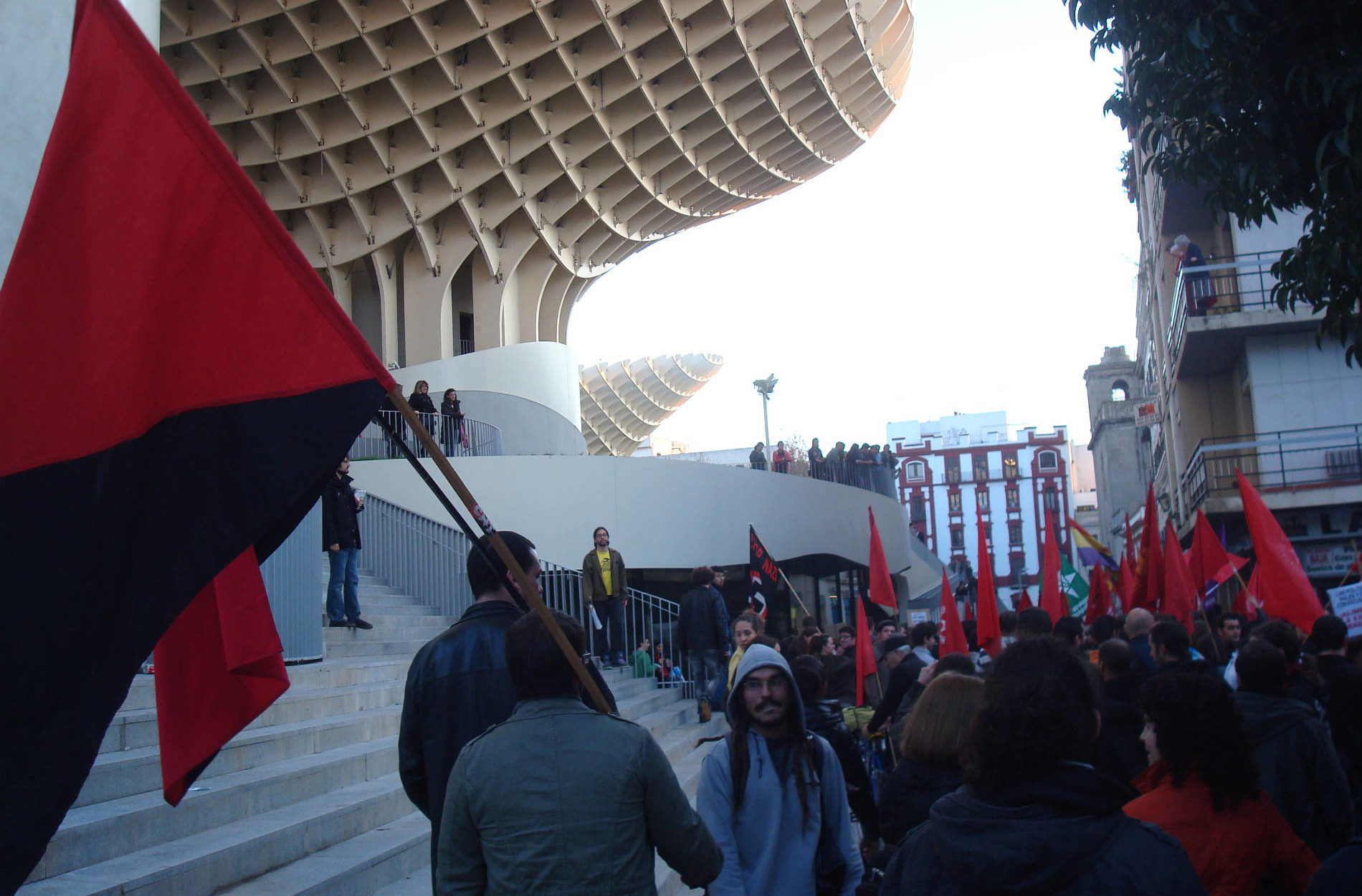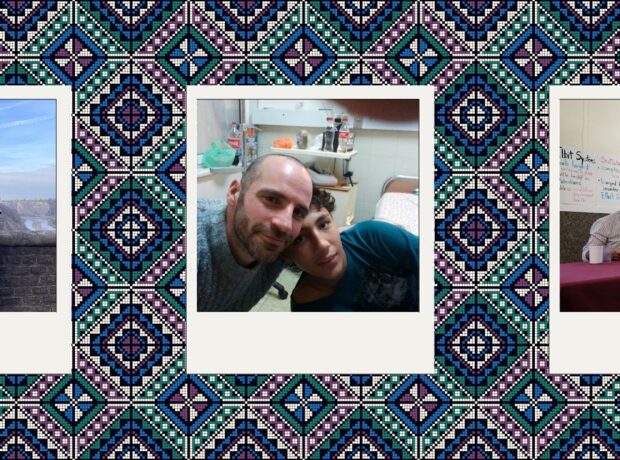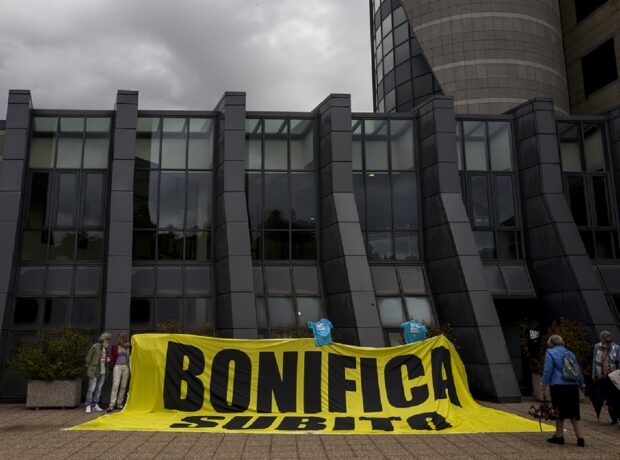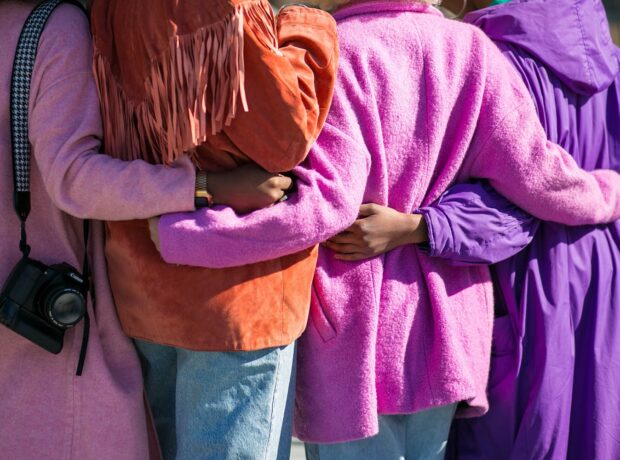Emma Herrera Ortiz’s eyes were alive at the memory. ‘At first it was disorganised,’ she recounted, ‘just a few people with some sleeping bags, but then in one or two weeks it got completely crazy. It was amazing, everybody was collaborating: trade unionists, students, people with babies, young people, old people.’
It was January 2012, in a small hostel in Seville, and Emma was recalling what was known as the Spanish Revolution, or the indignados movement, or more often, ‘15M’ – named for 15 May 2011, the first day of two months where Spain stood still, while millions of people took part in peaceful protests against corruption, democratic illegitimacy and the banking crisis. It was a similar story to that told across the world in 2011, from Tahrir Square to Wall Street, Athens to London: Spanish people were linking up locally, through word-of-mouth, via Twitter and Facebook, grabbing and replicating the energy from the huge protests in Barcelona and Madrid and spreading it in the smaller towns and cities across the country.
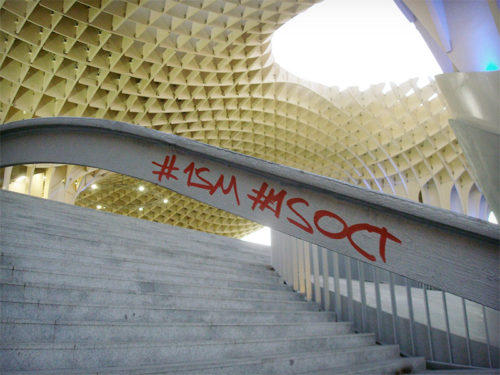
The 15M hashtag on Las Setas
Seville may be a city of global renown, a historic tourist destination, and the capital of Spain’s biggest region, but the city is not actually very big: it’s less than a quarter of the size of Madrid. Nonetheless, the day’s protests exploded into life there, over 30,000 people spilled out of the Metro and into the Plaza de España. Drums playing, in the southern heat of early summer, they marched past the world’s largest cathedral, past Plaza Nueva, where the city hall is, and onto the open space of the newly-finished public–private architectural folly widely known as Las Setas: The Mushroom. The camp lasted a month there, and Emma, like thousands of other first-time activists, stopped in whenever she could, sleeping a few nights there for the full experience, the corporeal solidarity.
Amidst Sevilla’s wizened stone and garlanded history, the demand was for something new. If they were to start creating ‘real democracy now’, as the 15M slogan demanded, it would be focused on horizontal organisation, mass assemblies, and consensus-based decision-making. A resurgent sincerity seemed to emerge from the swamp of postmodernist irony, just as it did at Occupy Wall Street. In both cases, they meant business. ‘They wanted to take it seriously,’ Emma told me. ‘Drinking was forbidden, because it was not supposed to just become a party, so at one or two in the morning people were just chatting quietly about politics, or sleeping. A lot of different topics came up, people who wanted to help Palestine or the Sahara. You had a schedule, day by day, a lot of events and discussions.’
The Spanish demand was for a stronger, grassroots democracy, but also for economic justice; unemployment in southern Spain has topped 35% since the crisis hit; for 16–24 year olds, it is above 60%. The national figures are barely any better – but the south was suffered particularly, thanks to the reliance on the construction industry on the Costa del Sol, and its total collapse since 2008. There are an astonishing 4 million empty homes in Spain.
‘Sevilla had so many building companies, before the “brick crisis”, as we call it.’ Emma explained ‘And now you have so many unemployed young – and not so young – people with no other qualification, other than to work in construction. We have thousands of flats where the construction has just stopped, and the buildings are just half-finished.’ These relics of late capitalism scar the Spanish landscape now.
More than 400,000 Spanish families have been evicted from their homes since 2008
Having identified the problem and made their voices heard, the indignados knew they couldn’t be camped out in the town squares forever, and soon faced the question posed by all the new global uprisings: how do you sustain momentum, or channel that democratic energy, once the placards have been put away? When the protest camps finally closed in the summer of 2011, 15M did two things: first, its members used their new contacts, energy and knowledge to join in concrete campaigns with concrete demands – things like the eviction-stopping Platform for Mortgage Victims, Plataforma de Afectados por la Hipoteca, or the CUP in Barcelona, a new political party (now with 3 elected representatives) devoted to grassroots democracy. Secondly, 15M devolved into local neighbourhood chapters, threaded in to the local community, meeting every Saturday in small groups – usually just 20–30 people in a town square, discussing hyperlocal problems. For 15M Seville, the housing crisis was always going to be the first port of call.
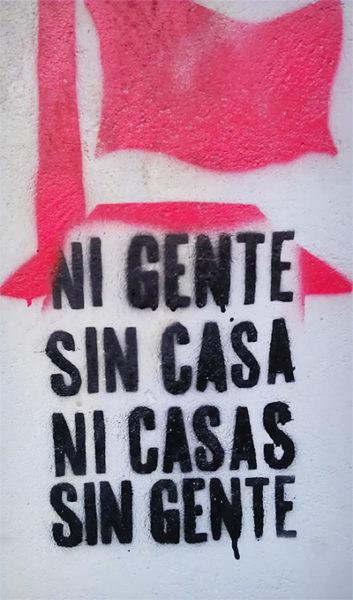
Neither people without homes, nor homes without people
More than 400,000 Spanish families have been evicted from their homes since 2008. In desperation, many have squeezed back into their parents or grandparents’ homes; three generations often forced to survive on one income, or one pension. But what if even that is not an option? 15M Seville dedicated themselves to joining the dots between the homeless and the empty homes. One newly-finished tower block in Seville, owned by a now-bankrupt construction company, had lain empty for months, until activists took it over to house 36 families (including 40 children) evicted by their banks. This block is now famous as the Corrala Utopía, and in spite of having their electricity cut off, and having to draw water from a stand-pipe in the street, when I visited last year, the occupants were quite clear: this was not a squat – these were their new family homes, and they were going nowhere.
One of the occupiers we met, Toñi Rodriguez, had left her home voluntarily in 2011 because she was being taken to court; she just couldn’t afford the rent for her and her son. She placed her son with his grandmother, while she slept in the car – getting up at 6am every day to take him to school. ‘I thought I was going to lose him to the social services,’ she explained. ‘Back then the people from 15M were holding public assemblies in a square every day. A friend said that they might be able to help me.’ And help they did. After months of planning, on 14 May 2012 they occupied the empty block together and created Corrala Utopía; they have been there ever since. On the wall of the Corrala Utopía was a stencilled slogan: ‘Ni gente sin casa, ni casas sin gente’: neither people without homes, nor homes without people.
These discrete, piecemeal victories are the ones that matter to people’s everyday lives, but 15M had a deeper effect on its participants’ worldviews, too. I asked Emma Ortiz whether she thought a little anti-corruption legislation and a change of government could help Spain back on the right path; she didn’t hesitate for a moment. ‘No. Everything has to change. People have to understand this capitalist system is based on crisis. It doesn’t matter who is in charge, that is going to happen. How you want to make the changes can vary, but pretty much everybody wants everything to change. It’s that bad.’
